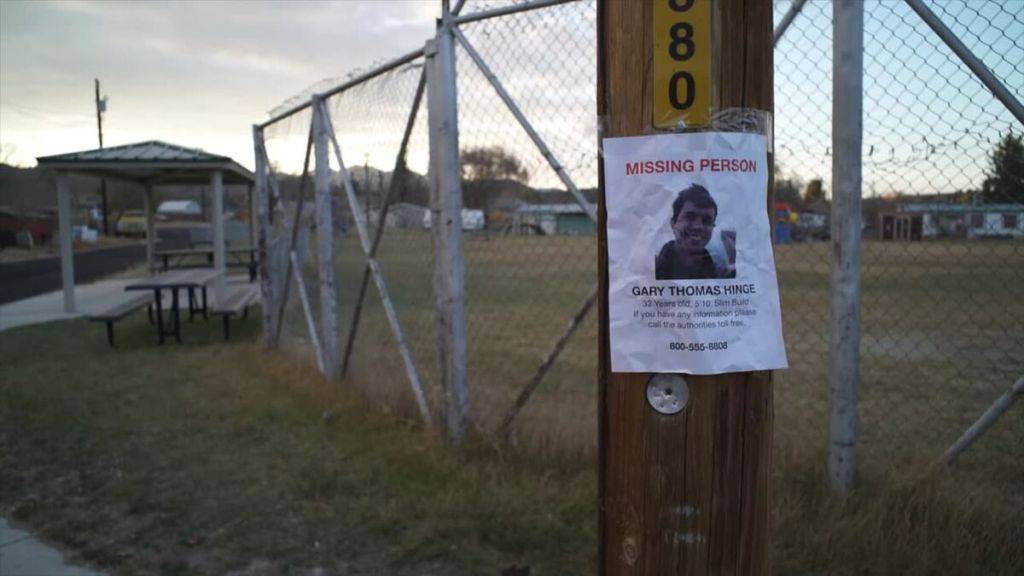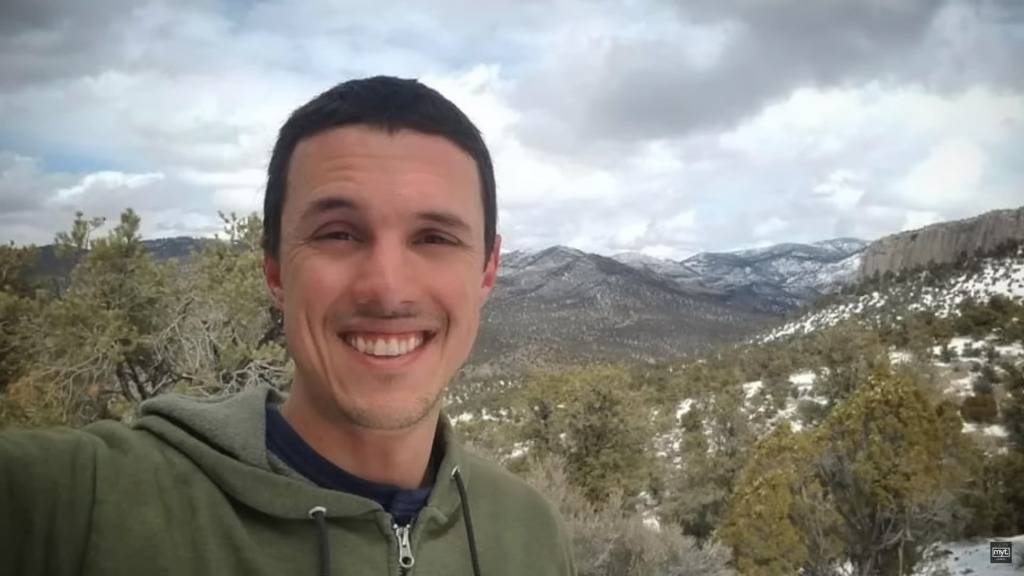Indie horror film Horror in the High Desert was released in March 2021. While drawing its inspiration for the plot from the true-crime account of Kenny Veach, this pseudo-documentary combines the veracity of true crime with the terror of found footage. The story centres around the slightly unsettling missing person case of Gary Hinge in the vast, barren Nevada desert. In order to advance the plot, interviews with people who are familiar with the case are interspersed with brief videos that Gary himself took.
Gary is first introduced in the plot through recordings from interviews with his sister Beverly and roommate Simon, who later introduce Gal Roberts and William “Bill” Salreno to the cast. The reporter and the private investigator each serve as a symbol for the general public’s interest and their own personal unease, adding to the gravity of the subject. The majority of the movie’s running length is spent developing its ominous, enigmatic angle, and after it has solidified its place in realism, it dives immediately into gory horror. The entire affair culminates in the final 15 minutes of a very terrifying conclusion that depicts the protagonist’s final moments.
During one of his routine hikes in the desert, Gary Hinge, a cheerful outdoorsy survival enthusiast, discovers a strange little home in the middle of nowhere. Gary immediately leaves the scene as a sensation of impending dread overtakes him. He chooses to tell his vast audience of followers about this experience on his internet blog because it has troubled and unnerved him. What comes next is a barrage of critical remarks that either refute his assertion entirely or demand more evidence. Gary returns to the desert in pursuit of the cabin, this time intending to record it in an effort to prove himself. There, he encounters a weird man—possibly the proprietor of the unsettling cabin—who kills Gary by slicing off his hand.
The conclusion of the film carries a significant portion of its genre-appropriate cinematic weight. The story’s initial enigmatic plotline completely depends on this particular ending for closure and resolution, and it ideally promises to provide the viewer with all the answers. Let’s look at a few of the most enduring among them. Spoilers follow.
Horror in The High Desert Ending, Explained: Why Does Gary go Back to Find The Cabin?
The most blatantly obvious question that the spectator is left with at the conclusion of most horror films is what the protagonist’s motivation was for making their ultimate choice. Why did the woman enter her old home’s eerie attic? Why do the teenagers believe that spending the night at a supposedly haunted house is a smart idea? Why would Gary Hinge return to a lodge that left him speechless the first time he encountered it?
Although though the entire film takes place after Gary’s passing, it makes a sincere effort to establish Gary’s personality and character through anecdotes and his own blog recordings. Early on, it becomes clear that Gary has always been a reclusive individual who values solitude over social interactions and people in general. This reclusive lifestyle shows that Gary is experiencing social rejection and isolation. His varied interests and pastimes only exacerbate his emotions of otherness and detachment, and he isn’t very adept at making friends. Gary was later revealed to have been involved with a man, but neither his sister nor roommate are proved to have been aware of it. This suggests that at the same time as feeling like a social pariah, Gary was also in the closet. When Private Investigator Bill investigates into the man Gary was in a relationship with, he is said to be frightened of being outed. His community is described as being “small town” with not many openly out homosexual individuals in it.
It may be tremendously isolating and alienating to be queer in a hostile and homophobic atmosphere. It makes people feel like social outcasts despite having nothing to do with them. Naturally, all of this leads to Gary feeling extremely and intensely excluded from social situations. But there is an escape from all of this on Gary’s site. Gary’s blog has 50,000 subscribers, all of whom like and interact with his interests and personality eccentricities. It is easy to understand why Gary would eventually become to rely on this source of social acceptance for his emotional fulfilment. He has been shown to have kept all of this from people in his real life, which suggests that he felt protective of this aspect of his life. He has found a place where he is liked and accepted in the online community. However, it begins to negatively affect him when the very same group starts to turn against him, refuse to believe his assertions, and accuse him of lying and fabricating stories.
He is fervently hoping that the cyberbullying will end and that his online community will return to how it was. a protected environment where he could pursue his passions and get passionate support. One may argue that his personal interest about the cabin sneaked its way into his motivations, but in the video he posted on his blog, he is plainly afraid and uneasy at the prospect of returning to the home. Even still, he continues to do it because, in the end, peer pressure can be a damaging tool.
Who Was The Man in The Woods?
The stranger in the woods, who ultimately caused Gary’s horrifying death, is only briefly mentioned in the movie’s epilogue. The story entirely depends on this individual to fulfil all the horrible promises that have been so far implied by the tale. The cabin exudes an atmosphere of impending terror; the desert hides a danger and a monster that don’t want to be seen. It is the basis for the entire pseudo-documentary; everything essentially depends on this man’s shocking revelation. Finally, it is revealed that he is just a physically abnormal dangerous man.
Disfigured abnormalities are frequently used in the horror genre as the ultimate punchline to their spooky setups. Yet it’s hardly ground-breaking storytelling to rely on the audience’s irrational, ableist dread to fill in the blanks. Because the movie doesn’t think knowing anything about this man’s background, identity, or motivations is vital for its tale, no information about him is known. It seems that all the audience needs to know about him is that he has violent impulses and has a scary appearance. Even while the story’s resolution isn’t the most satisfactory, it accomplishes its goal of making him the audience’s personification of a particularly terrifying long jump fright.
Why Does The Killer Leave Gary’s Backpack at The Campsite?
Despite the killer’s lack of personality or any indication of who he is, the film does make it apparent that he wishes to be left alone. Whatever his motivations or methods, he is prepared to make sure that he is completely cut off from society at large. Yet we’re never informed why he leaves the camera in Gary’s backpack or how he knows how a car works to drive it to a different spot to deceive anyone looking into Gary’s disappearance. One of the few mysteries about the character that is specifically addressed in the text is why he leaves the backpack behind, which contains Gary’s severed hand. It’s a signal of danger. a danger. A warning to anyone else who tries to find him of what will happen to them.
In the end, the film’s conclusion serves as a warning about the unknown. Maybe it’s a reflection on how intrusive the online world is today, or maybe it’s simply more evidence that the author of the story isn’t willing to take a strong stance against the murderer. In any case, by the time this movie ends, the audience is too busy reeling from the horrifying, blood-curling conclusion to have the time to question.



